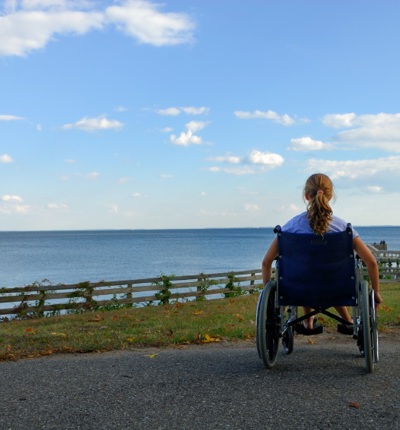The GIRFT initiative is a programme funded by the Department of Health that is jointly overseen by NHS Improvement and Royal National Orthopaedic Hospital NHS Trust. GIRFT’s purpose is to improve the quality of care provided by the NHS. It does so by preparing reports which make recommendations to reduce “unwarranted variations”.
GIRFT’s latest report considers emergency
spinal conditions, such as Cauda Equina as well as more common conditions, such as Sciatica. The report and its recommendations have been endorsed by the United Kingdom Spine Societies Board, the British Association of Spine Surgeons, the Society of British Neurological Surgeons, the British Orthopaedic Association and National Backpain Pathway – Clinical Network.
The report makes 22 recommendations which are aimed at not only improving patient experience but with a view to saving the NHS up to £27 million. Some of the key recommendations are:
1. “Trusts to follow SBNS and BASS guidance on the management of patients with suspected cauda equina syndrome, including urgent referral by a senior decision-maker to a 24-hour MRI scanning service performed locally in the hospital of presentation, ensuring no delay. Radiologists must prioritise these patients in light of the syndrome’s severity and the time-critical nature of effective treatment”
Cauda Equina Syndrome (CES) occurs where the spinal nerve roots in the lower back become severely compressed resulting in symptoms such as sciatica, weakness and/or numbness in the legs, genital area and/or anus, and urinary and/or faecal incontinence. CES requires urgent surgical intervention to prevent paralysis and permanent loss of bladder, bowel and sexual function.
An MRI scan is the imaging of choice for assisting in the diagnosis of CES as it has the ability to show soft tissue injuries. Given the urgent need for treatment, having access to 24-hour scanning is going to make a major difference to hospitals and patients in the future when it comes to diagnosing CES, and will hopefully result in more diagnoses, as many centres don’t currently have such facilities.
2. “All major trauma centres to have 24/7 ability to stabilise and decompress patients with fractured and/or dislocated spines”
A spinal fracture or dislocation can result in bone fragments damaging or “pinching” the spinal nerves or cord, which if not treated immediately can result in loss of function and sensation to the body below the level of the damage. Early management in the form of decompression surgery to remove the fragments is therefore imperative and this recommendation seeks to ensure that patients will have access to such treatment 24 hours 7 days a week.
Data from the National Spinal Cord Injuries Database (NCSID) shows that between April 2015 and March 2017, the median time from injury to surgery was 1 day; however 33% of patients waited 2 or more days for surgery mostly due to a lack of out-of-hours availability, and therefore this recommendation should help to reduce the waiting time to no more than 24 hours, which is in line with relevant guidance and protocols.
3.“Urgently implement measures to reduce litigation costs by applying GIRFT’s five-point plan, adopting best practice consenting processes, and adhering to guidance on the management of suspected CES”
According to NHS Resolution, the cost of spinal surgery litigation (including reserve and estimated values) from 2012/2013 to 2016/2017 was £535.5 million from 978 claims, which is obviously a vast sum.
GIRFT’s research found that many establishments had little awareness of the claims against them, which meant that they have not been able to learn from them so as to ensure better practice in the future. They have therefore put together a Five-Point plan in the hope of reducing litigation costs by improving patient care. The Five-Point plan is detailed within the report and is as follows:
- Trusts to assess their benchmarked position compared to the national average when reviewing their estimate litigation cost per activity;
- Clinicians and trust management to discuss with the legal department or claims handler that the claims submitted to NHS Resolution are correctly coded;
- Once claims have been verified, clinicians and trust management to review claims in detail to determine where patient care or documentation could be improved;
- Claims should be triangulated with learning themes from complaints, inquests and SUIs and where an SUI has not already been reviewed, it is recommended that this is carried out to ensure no learning opportunity is missed;
- Where trusts are outside the top quartile of trusts for litigation costs per activity, GIRFT national clinical leads and regional hub directors will support trusts in taking steps to learn from claims.
Another aim of this recommendation is to ensure that when it comes to the consenting process, informed consent is always obtained prior to any surgical procedures. Failing to obtain informed consent has long been a cause of litigation, with 8.1% of spinal surgery claims between 2012-2013 and 2016-2017 being brought as a result of lack of consent (according to the GIRFT report), as was the position in the case of
Tracy Hassell, who was not made aware of the risk of paralysis from optional surgery and sadly ended up paralysed.
The final aim of this recommendation is to reduce the volume of CES claims, which according to GIRFT’s assessment of spinal surgery litigation claims in England between 2013 and 2016 represents 23% of claims. Specifically, hospitals have been told of the importance to follow the British Association of Spinal Surgeons/The Society of British Neurological Surgeons Guidance on the investigation and management of CES [3]. This includes the need for urgent scanning and transfer for decompression surgery as discussed above.
In considering just three of the 22 recommendations, it is clear that if implemented, these could have a really positive effect on the provision of spinal services in the NHS, not only for the patients but for the clinical staff too, and it will be interesting to see the difference they make in the future.



